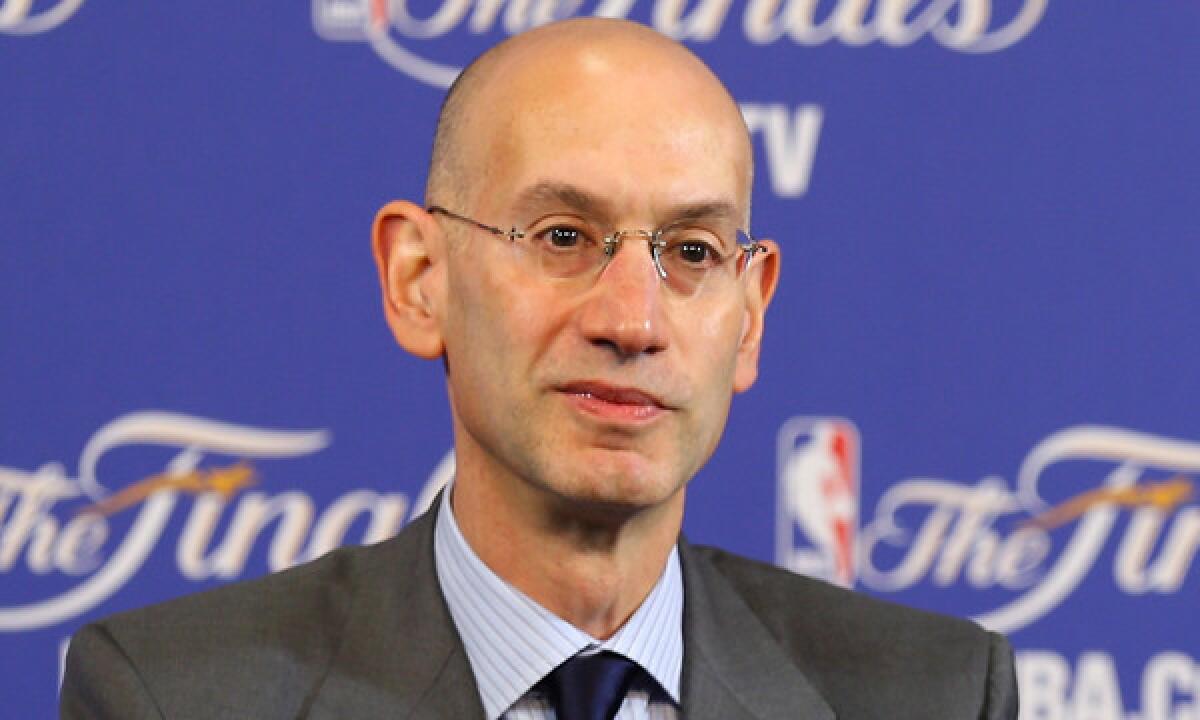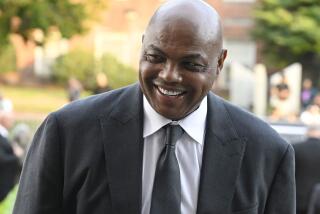Incoming NBA chief Adam Silver did 22 years of on-the-job training

Adam Silver won’t have to familiarize himself with the minutiae of the NBA’s collective bargaining agreement upon succeeding David Stern as league commissioner Saturday.
Silver negotiated that deal himself.
It was the most high-profile assignment Silver undertook during a 22-year apprenticeship that widely is believed to have prepared him for the league’s top job. The longtime lawyer started as a special assistant to Stern before running the entertainment division and becoming deputy commissioner in 2006.
“The succession plan has been seamless,” said David Carter, executive director of the USC Sports Business Institute. “Adam’s been all but running point on a lot of these different elements whether it’s a labor negotiation or TV deals or international pieces or whatever. The fact that you’ve got someone stepping in that knows the business is going to be very helpful to the league as it works its way through the new TV contract.”
The NBA’s current deals with ABC, ESPN and TNT are worth a reported $930 million annually and expire after the 2015-16 season, though the next deal could more than double that figure and include new broadcast partners.
The numbers aren’t adding up equally for every team, however.
Local television contracts such as the Lakers’ 25-year, $5-billion deal with Time Warner Cable could widen the gap between the league’s haves and have-nots, even with a chunk of that money going into league-wide revenue sharing. Forbes reported that the Lakers’ $122 million take last season from TWC represented more than 20 times what the Charlotte Bobcats and Milwaukee Bucks received from their broadcast partners.
“Keeping an eye on at least a measure of competitive balance is something that Adam is going to have to do,” Carter said, “because the flow of funds coming in and whether those are shared or non-shared is certainly going to be different coming up.”
Change doesn’t seem to be on Silver’s immediate agenda. He said during a media conference in London this month the NBA would eventually consider adding teams in Europe but had no plans to shorten its 82-game schedule.
“The league is operating at a wonderful state right now,” Silver told reporters, “so I want to be very cautious about making any changes. But invariably we will make changes over time.”
Silver doesn’t have to worry about the possibility of another lockout until 2021, unless either the players or owners decide to exercise an opt-out clause in the current collective bargaining agreement in 2017.
In the meantime, Silver enters the getting-to-know-you phase of his tenure as a somewhat anonymous heir to the iconic Stern. Silver, 51, has a leadership style that has been described as more measured and conservative than his predecessor.
“I think it will be a breath of fresh air for him as a younger guy to come in,” said Steve Kerr, a five-time NBA champion with the Chicago Bulls and San Antonio Spurs and former GM with the Phoenix Suns. “David has always been sort of a dictator and I have no problem with that — you can’t argue with the results — but I think a lot of people in the league are excited for Adam because he’s so respected and well-liked.
“He has a chance to come in and offer new life and new ideas and kind of carry the NBA forward into the next era.”
Twitter: @latbbolch
More to Read
Go beyond the scoreboard
Get the latest on L.A.'s teams in the daily Sports Report newsletter.
You may occasionally receive promotional content from the Los Angeles Times.











